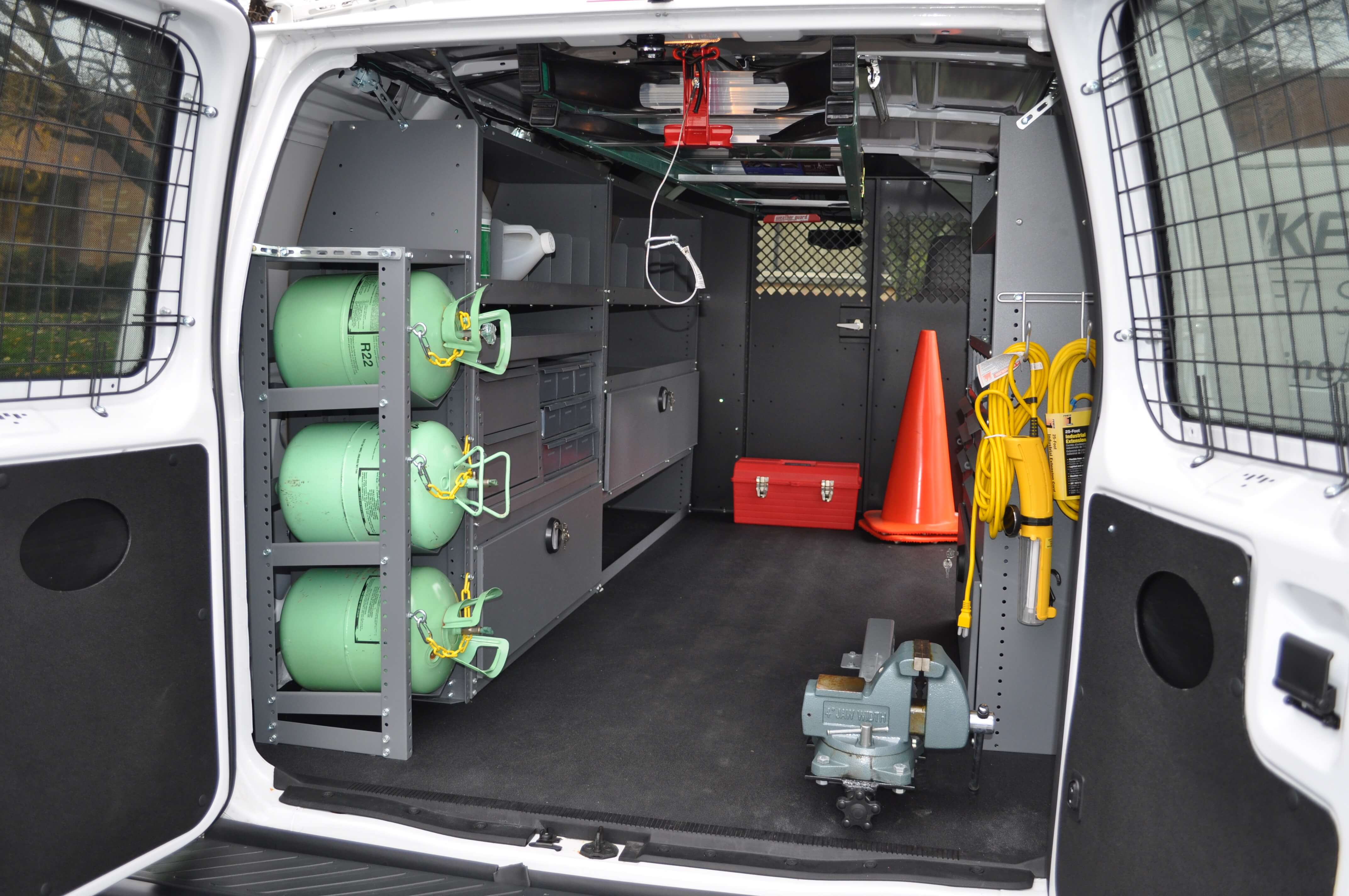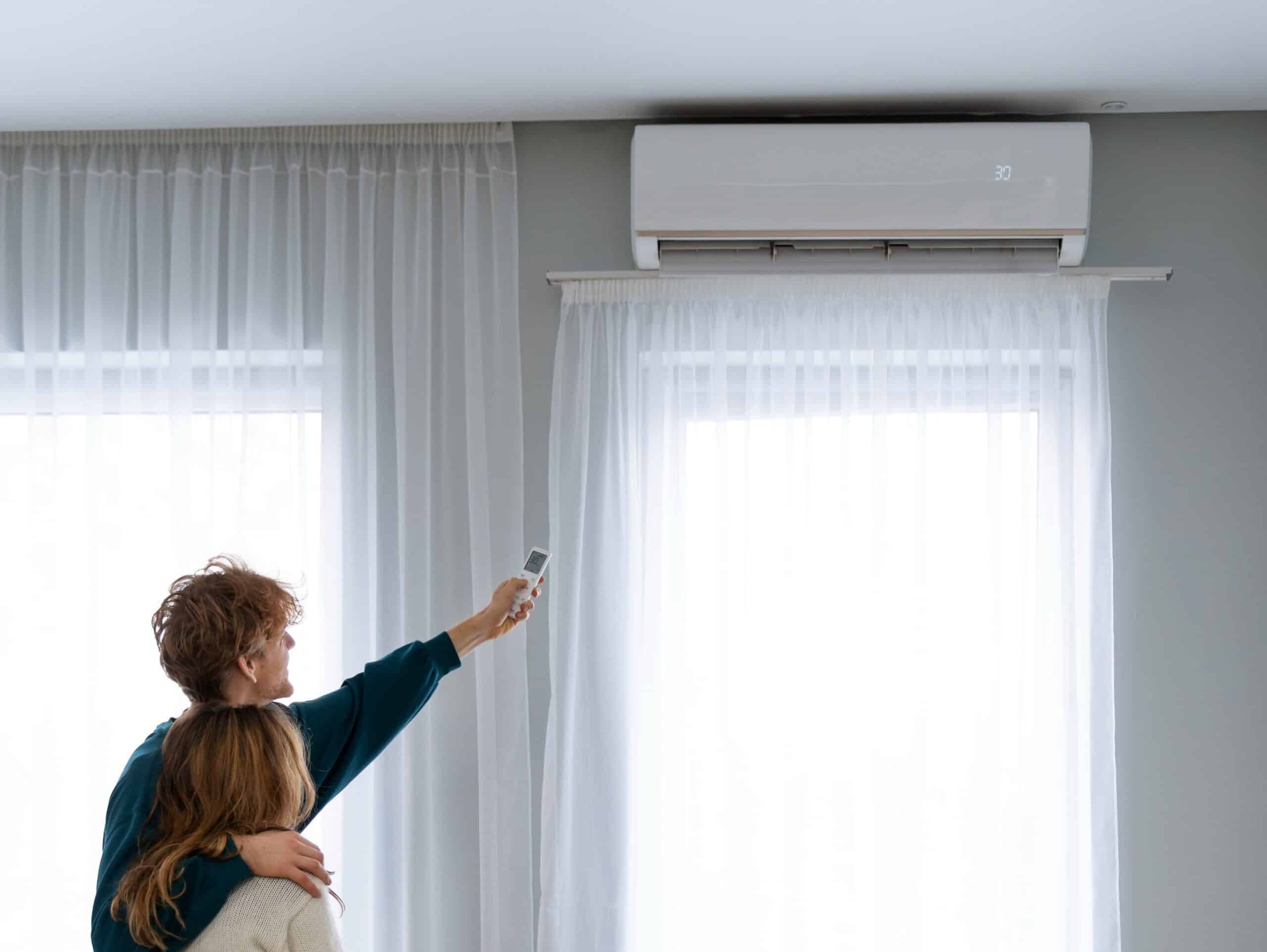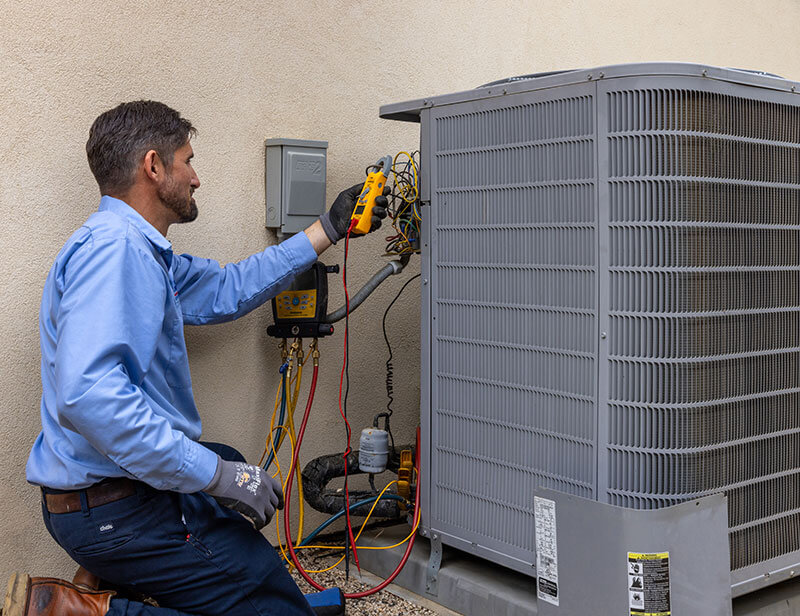Budget-Friendly Maintenance Plans with DMAKS HVAC for Your Needs.
Budget-Friendly Maintenance Plans with DMAKS HVAC for Your Needs.
Blog Article
How to Pick the Right Cooling And Heating System for Your Demands
Picking the ideal HVAC system is a crucial decision that calls for cautious consideration of various factors. Begin by evaluating your home's dimension, format, and special requirements, as these elements determine the needed capacity and configuration of the system. In addition, developing a budget plan that encompasses installment and long-lasting operational costs is important. As you weigh your options, recognizing power efficiency rankings and the ramifications of your local environment will certainly play a considerable role in your selection. The myriad of system types readily available can complicate this process, leading one to wonder which course eventually leads to optimum convenience and efficiency.
Examine Your Home Size
Analyzing your home dimension is a crucial first step in selecting the appropriate A/c system. An A/c system that is also small will struggle to preserve comfy temperatures, leading to enhanced power consumption and wear on the system.
To properly analyze your home dimension, gauge the square video of each space, thinking about aspects such as ceiling height and the format. In addition, take into consideration the insulation top quality and the number of windows, as these elements influence thermal efficiency. Houses with open floor plans might call for different system configurations compared to those with several divided rooms.
Using the Handbook J load estimation technique can offer a more specific price quote of your cooling and heating requires. This method make up different elements, consisting of regional environment, solar gain, and tenancy patterns. By carefully evaluating these facets, you can guarantee that your chosen cooling and heating system is properly sized, leading to enhanced convenience, power effectiveness, and longevity of the tools.
Determine Your Budget Plan
Establishing your budget plan is a critical action in the a/c system selection procedure, as it establishes the specifications for your options - DMAKS HVAC. A HVAC system is a substantial investment, and recognizing your financial limitations will assist limit choices that fit within your ways
Begin by assessing not only the first purchase cost yet also installment costs, which can differ significantly depending upon the intricacy of the project. Consider ongoing costs such as upkeep, repair work, and energy usage. A system might show up budget-friendly originally but can result in greater costs over time if it is much less effective.
It is advisable to assign a backup fund for unforeseen expenditures that may develop throughout installment or first system adjustments (DMAKS HVAC). Additionally, explore financing options or refunds that may be offered, as these can alleviate the problem of ahead of time prices
Eventually, having a clear spending plan allows you to involve with HVAC specialists better, guaranteeing you get customized recommendations that aligns with your economic goals and home demands. By being thorough about your budget plan, you can make informed decisions that boost convenience without jeopardizing economic stability.
Evaluate Power Effectiveness
Power effectiveness plays a crucial function in the total performance and cost-effectiveness of your HVAC system. When choosing a system, it is necessary to consider its power efficiency rankings, as these figures straight influence your utility expenses and ecological footprint. Try to find systems with a high Seasonal Energy Performance Proportion (SEER) for cooling and a high Yearly Gas Usage Performance (AFUE) Continued rating for heating. Greater ratings suggest better efficiency, indicating even more comfort for less energy consumption.
In addition, take into consideration the Energy Star accreditation, which indicates that the system fulfills stringent efficiency guidelines set by the Environmental Security Firm. Buying a Power Star-rated HVAC system can lead to significant savings in time, especially in areas with extreme temperature level variations.
An additional factor to examine is the system's dimension and capability. A large or undersized system can cause ineffectiveness and boosted power expenses. DMAKS HVAC. Appropriate sizing, commonly determined via a Manual J load estimation, makes certain that the system runs at ideal effectiveness


Take Into Consideration Climate and Environment
When choosing an a/c system, it is crucial to consider the regional environment and ecological problems, as these variables significantly find more info influence the system's performance and efficiency. Different areas experience differing temperature level extremes, moisture degrees, and seasonal modifications, every one of which effect heating and cooling demands.

Additionally, local environmental variables, such as air high quality and possible irritants, need to inform your selection. Systems furnished with advanced filtration modern technologies can help alleviate toxins and offer cleaner air. Furthermore, consider the energy sources readily available in your area-- some cooling and heating systems are much more effective when powered by all-natural gas or renewable resource sources.
Inevitably, straightening your heating and cooling system choice with your neighborhood climate and environmental factors to consider will certainly bring about enhanced comfort, enhanced effectiveness, and reduced power expenses.
Explore System Types and Attributes
As property owners look for to maximize convenience and performance, exploring the various kinds of cooling and heating systems and their unique features becomes vital. The main sorts of cooling and heating systems consist of main air conditioning, heatpump, ductless mini-split systems, and heaters. Each system offers distinct advantages tailored to various demands and choices.
Air conditioning systems give consistent air conditioning throughout a home, making them optimal for larger rooms. Heatpump function as both heating and cooling solutions, utilizing electrical energy to transfer warm, which can result in lower power prices. Ductless mini-split systems are ending up being progressively prominent due to their flexibility and convenience of setup, permitting house owners to manage the temperature in individual areas without substantial ductwork.

Conclusion
Finally, choosing the suitable a/c system requires cautious factor to consider of numerous factors, including home size, spending plan restrictions, energy performance, regional environment, and readily available system kinds. A comprehensive evaluation of these components ensures optimal comfort and cost-effectiveness. By following a structured approach, property owners can make educated decisions that align with their specific requirements and choices, eventually causing improved indoor air quality and energy savings.
Report this page